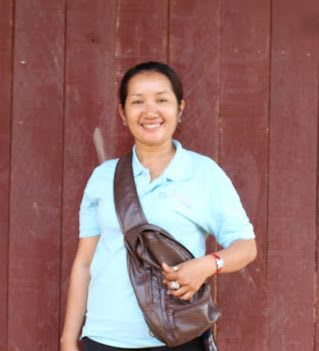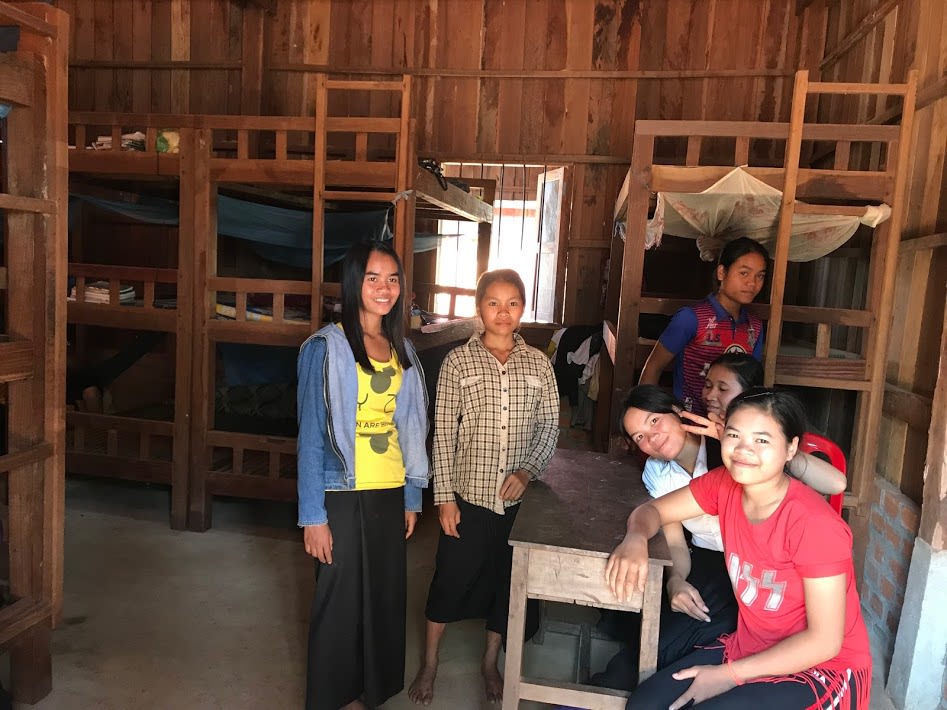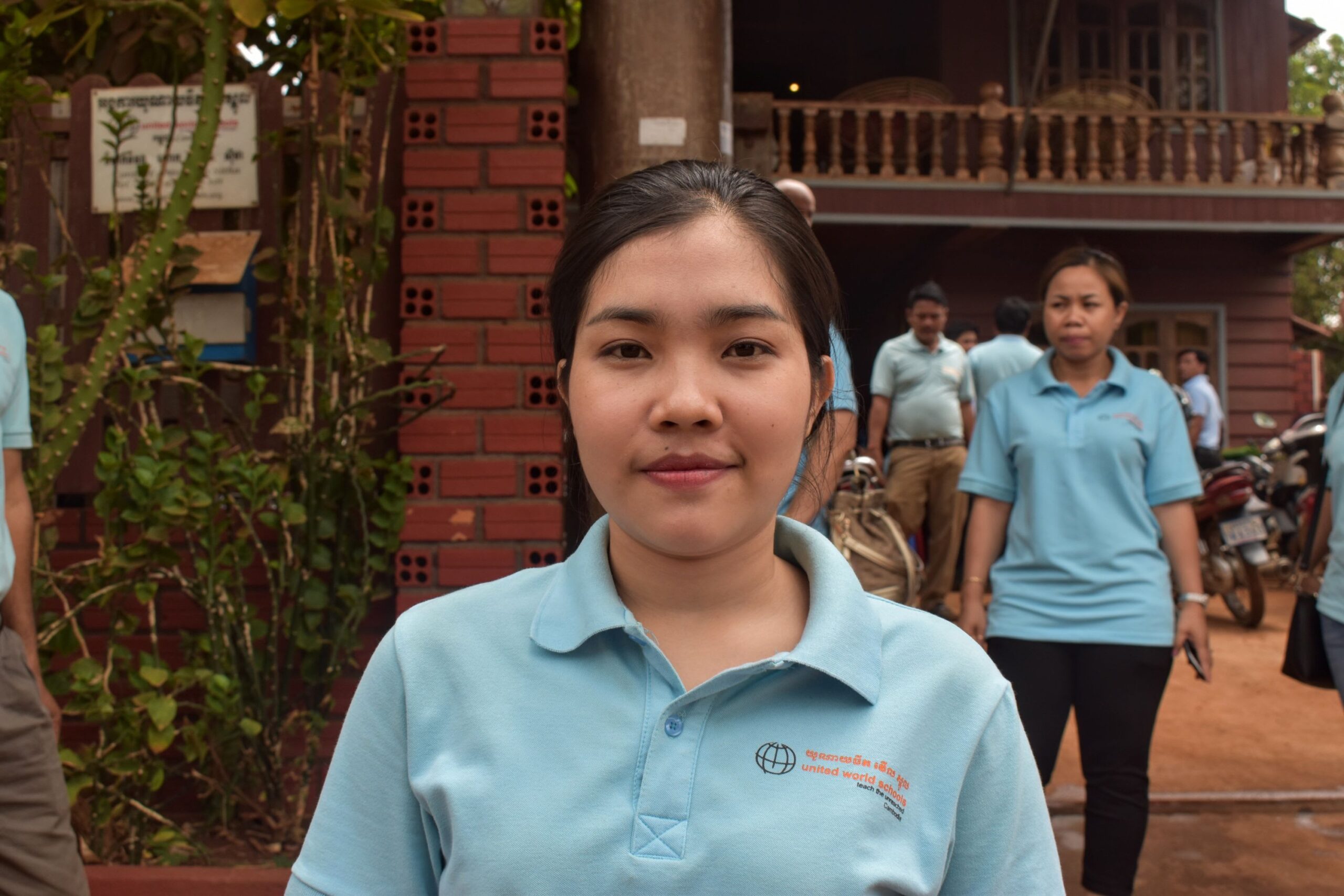
Can you tell us a little bit about the UWS dormitories? Why do we build them?
The reason we build dormitories is that when students live so far away from towns they don’t have easy access to higher education. When we build dorms these students can change their living conditions and continue their studies. The second reason is for the girls.
Because fewer girls are able to attend secondary school?
Yes, due to concerns from parents about their safety travelling to and from school. When our dormitories are built this provides a safe space for the girls to live during the week so they can continue to study.
Do you know how many students UWS supports through the dormitories?
In Ratanakiri Province there are 3 dormitories, and overall we support 125 female students and 150 male students. We are currently building one more dormitory in a neighbouring Province.
What challenges do girls face in education and how do our dorms provide opportunities for girls?
When I go to the dormitories I always ask all the female students what challenges they face and they always reply with “none!”. This is because living in the dormitories is easy and safe for them. Also, UWS provides them with anything that they need, including sanitary towels so they can continue going to school on their periods. This programme really makes such a difference to girls’ education.

Can you tell us a bit about the hygiene education that you give to the girls in the UWS dormitories?
I take them sanitary towels once a month. After I have made sure that every student has a packet I teach them how to use the sanitary towels, how to keep them and also how to dispose of them. I explain to them the best way to use the products and not affect their health for example changing the pad often, every couple of hours. Most female students have encountered sanitary towels before, but some families just can’t afford to buy them every month and so the girls need this education.
What impact do you think these dorms have on the students, their parents and the communities?
The people living in the communities are very happy that there are dormitories being built so they can send their children to secondary.
There are lots of stories about students in rural communities leaving primary education to get married. Do you think that having access to dormitories will change this at all?
Unfortunately young marriages are still happening in the rural communities with children dropping out in grades 5 or 6, although the number is lower than it used to be. Dormitories can make a difference, if children stop studying altogether they are more likely to get married. It really depends on the students. If they fall in love and want to get married they stop studying, but dormitories seem to help girls focus their education.
MEET SREYMOM:

Born and raised In Banlung Town, Ratanakiri, Sreymom originally worked in the field of education as a teacher in Heng Leang school, joining UWS Cambodia in February 2017 as an Education Officer for our primary schools. She also used to work with the international NGO UNICEF and ran healthcare projects in Borkeo district.
We sat down with her to find out how she was getting on with her new position at United World Kindergartens.
Great to have you part of the UWK family! How are you settling in?
I like it klang na! (so much!) My favourite part is working with the children and the villagers and seeing the smile the children have when they are singing songs and playing.
Why did you want to make the switch from primary to early years education?
Because I want to gain new experiences. I love working with children as well.
I was so happy to start working here, I am excited to learn and to share everything that I know with the kindergarten team.
And what does your new job involve?
Most days I am working out in the villages, supporting the teachers, providing training. I teach them how to use the materials and demonstrate good teaching practises, singing songs and reading stories, as well as conducting hygiene workshops and helping to cook and feed the children. Every day is different.
What do you hope for the future?
I really care about the students and how they are doing. I would love for everybody in the villages to be inspired to learn, and in 10 or 20 years I hope our own students would be able to become teachers.
